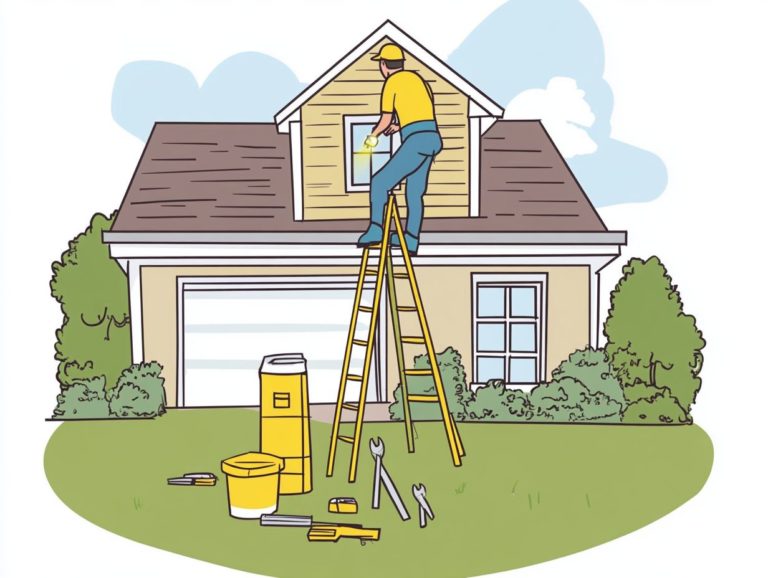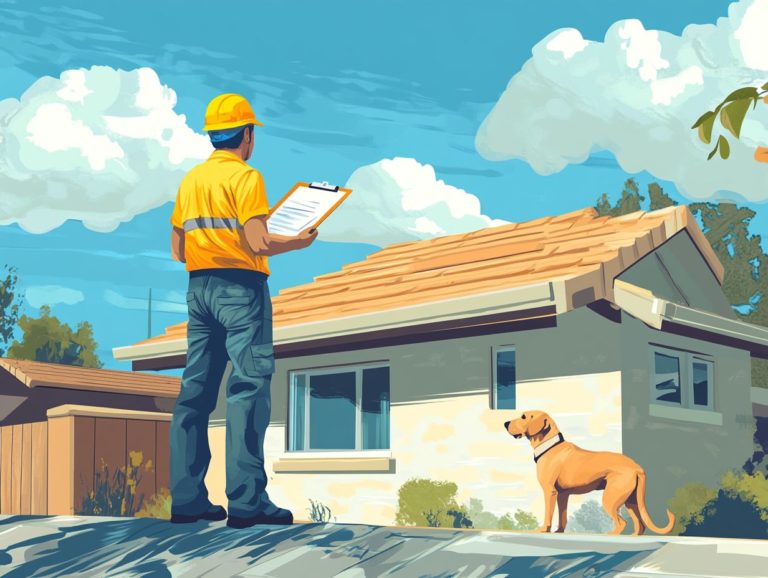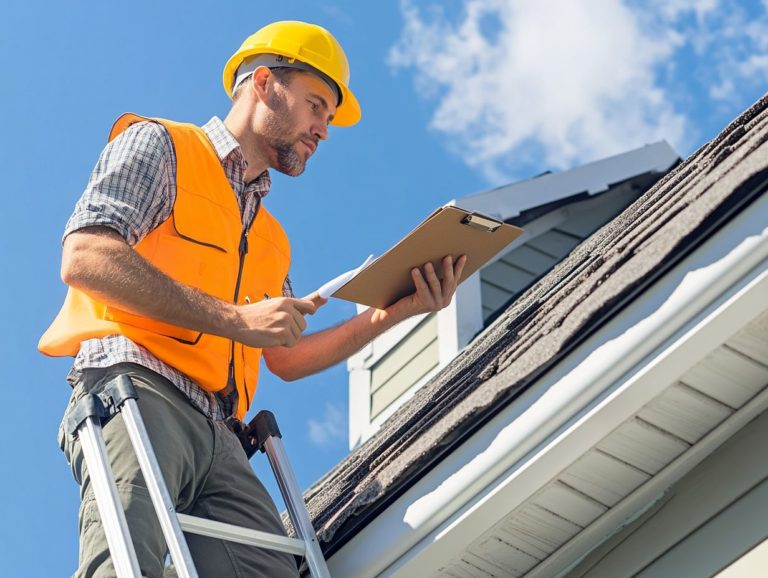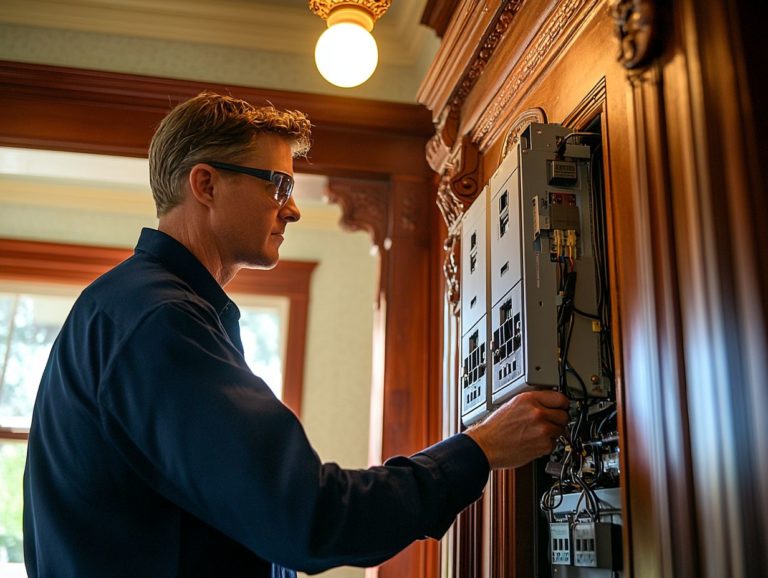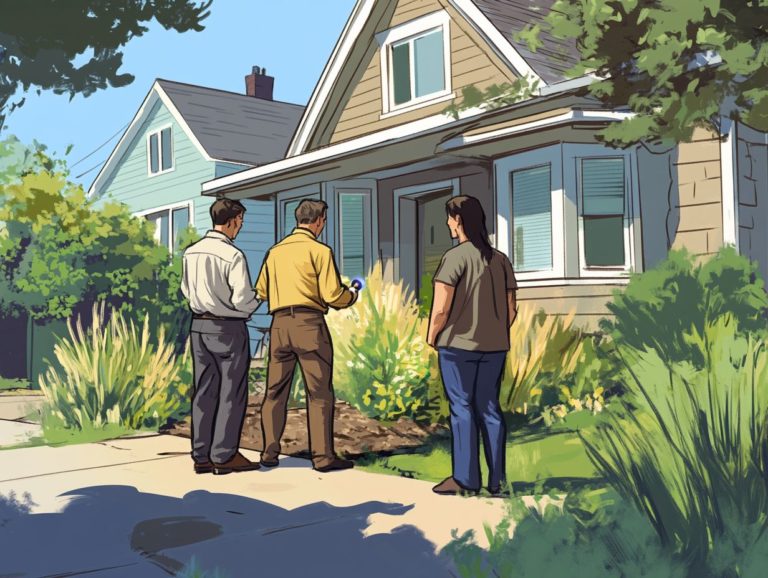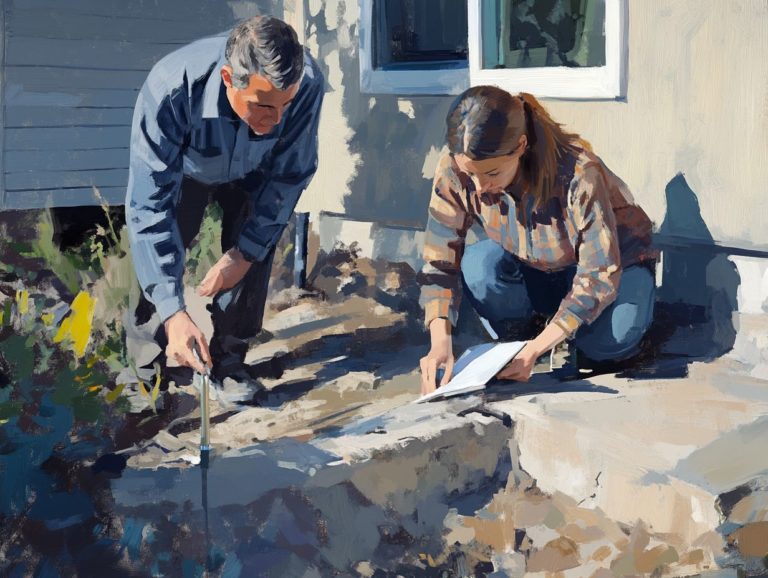Understanding the Cost Breakdown of Home Inspections
Purchasing a home stands as one of the most significant investments you will ever make, making a comprehensive home inspection an essential step in the journey.
This article unpacks what a home inspection involves, delving into its definition, purpose, and the myriad benefits it provides to buyers like you.
You ll also explore the different factors that affect inspection costs, average pricing, and any potential additional fees that might arise.
Moreover, you’ll discover practical tips for saving money on inspections, ensuring that you secure the best value for your investment.
Contents
- Key Takeaways:
- What is a Home Inspection?
- Why Get a Home Inspection?
- Factors Affecting the Cost of Home Inspections
- Average Cost of Home Inspections
- Additional Fees and Services
- How to Save on Home Inspection Costs
- Preguntas Frecuentes
- Cu l es el desglose de costos de una inspecci n de vivienda?
- Cu nto cuesta normalmente una inspecci n de vivienda?
- Qu servicios se incluyen t picamente en una inspecci n de vivienda?
- Existen servicios adicionales que puedan ser recomendados?
- Se puede negociar el costo de una inspecci n de vivienda?
- Vale la pena el costo de una inspecci n de vivienda?
Key Takeaways:
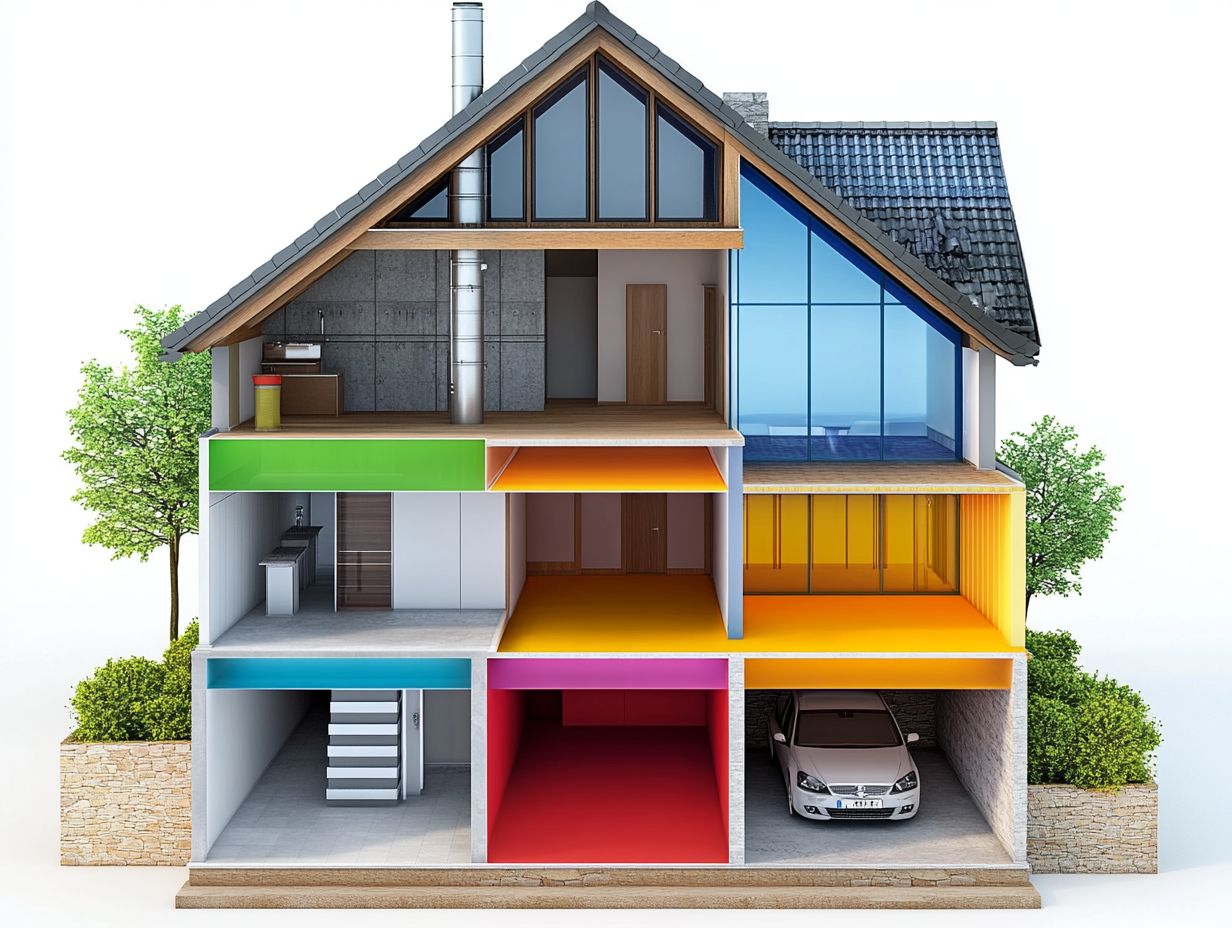
Home inspections are thorough evaluations of a property’s condition, serving to identify any potential issues or hazards before purchasing a home.
Getting a home inspection can provide peace of mind, save money in the long run, and help you make an informed decision about a property.
The cost of a home inspection is influenced by factors such as the size and age of the home, its location and accessibility, and the type of inspection required.
What is a Home Inspection?
A home inspection serves as a thorough visual examination of a property’s condition. It evaluates major systems and pinpoints potential issues that could affect your financial investment as a homebuyer.
Usually carried out by a certified home inspector, this process entails assessing structural integrity, plumbing, electrical systems, and HVAC (heating, ventilation, and air conditioning). The inspector then compiles their findings into a detailed report, providing you with crucial insights into necessary repairs and maintenance.
Definition and Purpose
The purpose of a home inspection is to equip you with a comprehensive assessment of a property’s condition, empowering you to make informed decisions during the home buying journey.
This process involves a careful check of various elements of the home, such as the roof, foundation, plumbing, electrical systems, and overall structure.
By uncovering potential issues or necessary repairs, a home inspection acts as both a shield for you, the buyer, and a tool for negotiating more favorable contract terms.
For example, common discoveries like mold, roof leaks, or outdated wiring can profoundly affect your confidence and willingness to move forward with the purchase.
Ultimately, possessing a thorough understanding of these potential problems aids you in negotiating repairs or price adjustments while nurturing a sense of security in the investment you are making.
Why Get a Home Inspection?
Don t leave your biggest investment to chance get a home inspection today! Investing in a home inspection is absolutely essential for you as a homebuyer. It offers invaluable peace of mind by uncovering any hidden problems or structural issues that could necessitate significant repairs in the future.
Benefits of Home Inspections
The significance of a home inspection cannot be overstated; it serves as your shield against unexpected issues, helping you make a smart choice about your home.
By carefully assessing the condition of essential systems like plumbing, electrical, and roofing, home inspections offer invaluable insights into the overall health of a property.
This proactive strategy can reveal safety hazards that might pose risks to future occupants, empowering you to negotiate necessary repairs or rethink your purchase altogether.
Getting personalized recommendations from experienced professionals can ease any worries you may have about market conditions and potential financial ramifications, enabling you to invest wisely and confidently in your new home.
Factors Affecting the Cost of Home Inspections
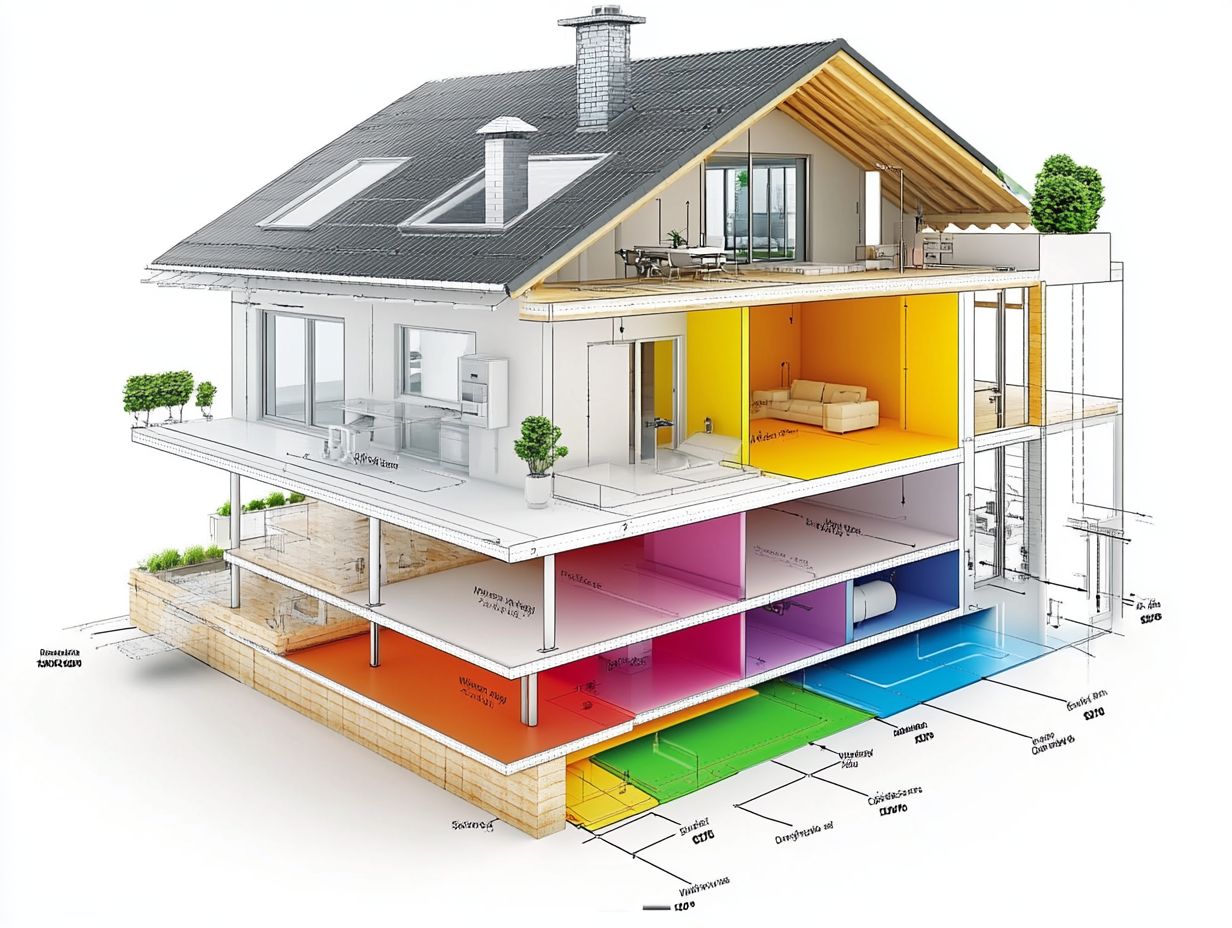
Several factors will influence the average cost of your home inspection. Consider aspects such as the size of the property, its location, and the specific types of inspections you may require.
Each of these elements can significantly affect the fees charged by inspectors.
Ready to protect your investment? Schedule your home inspection today!
Size and Age of the Home
The size and age of a home are crucial factors that can significantly impact the average price of a home inspection.
Larger homes need more time for a thorough inspection. When considering a property with generous square footage, inspectors often navigate many rooms, bathrooms, and outdoor spaces. This naturally lengthens the duration of their work.
Older homes bring their own unique challenges. With aging infrastructure, they can hide a variety of potential issues. Inspections for these properties often extend beyond mere wear and tear to include specialized concerns such as the strength of the home’s base, outdated plumbing, or electrical systems that may not align with current safety standards.
These complexities can drive up costs, as inspections may require advanced tools or specialized expertise.
Location and Accessibility
Location factors are crucial when determining the cost of a home inspection. Accessibility and regional market conditions significantly influence inspector fees.
In bustling urban environments like New York City, the high volume of real estate transactions often leads to increased inspection costs driven by the demand for qualified inspectors. In smaller areas such as parts of Texas, where the pool of inspectors may be limited, costs can fluctuate considerably based on available expertise.
Local regulations in cities like Chicago require specific inspections for older properties, which can further elevate the expenses homeowners encounter. These intricacies highlight that geographical context goes beyond mere distance; it encompasses local market dynamics, available resources, and regulatory demands.
Type of Inspection
Different types of inspections, including specialized ones for radon, termites, or structural assessments, can significantly influence the overall cost of your home inspection.
While a standard inspection usually covers the main systems of a property, specialized inspections dive deeper into specific issues that may not be immediately obvious. This often means additional fees, as inspectors with specialized qualifications are typically required.
An inspector’s expertise affects pricing; those with extensive experience and advanced certifications may charge higher rates. This reflects their ability to spot potential problems more effectively and deliver a thorough assessment.
Consider these factors closely to make the best choice when evaluating your inspection options.
Average Cost of Home Inspections
The average cost of home inspections varies considerably across the nation, with both national and regional averages showcasing the rich diversity of the housing market and the varying fees set by local inspectors.
National and Regional Averages
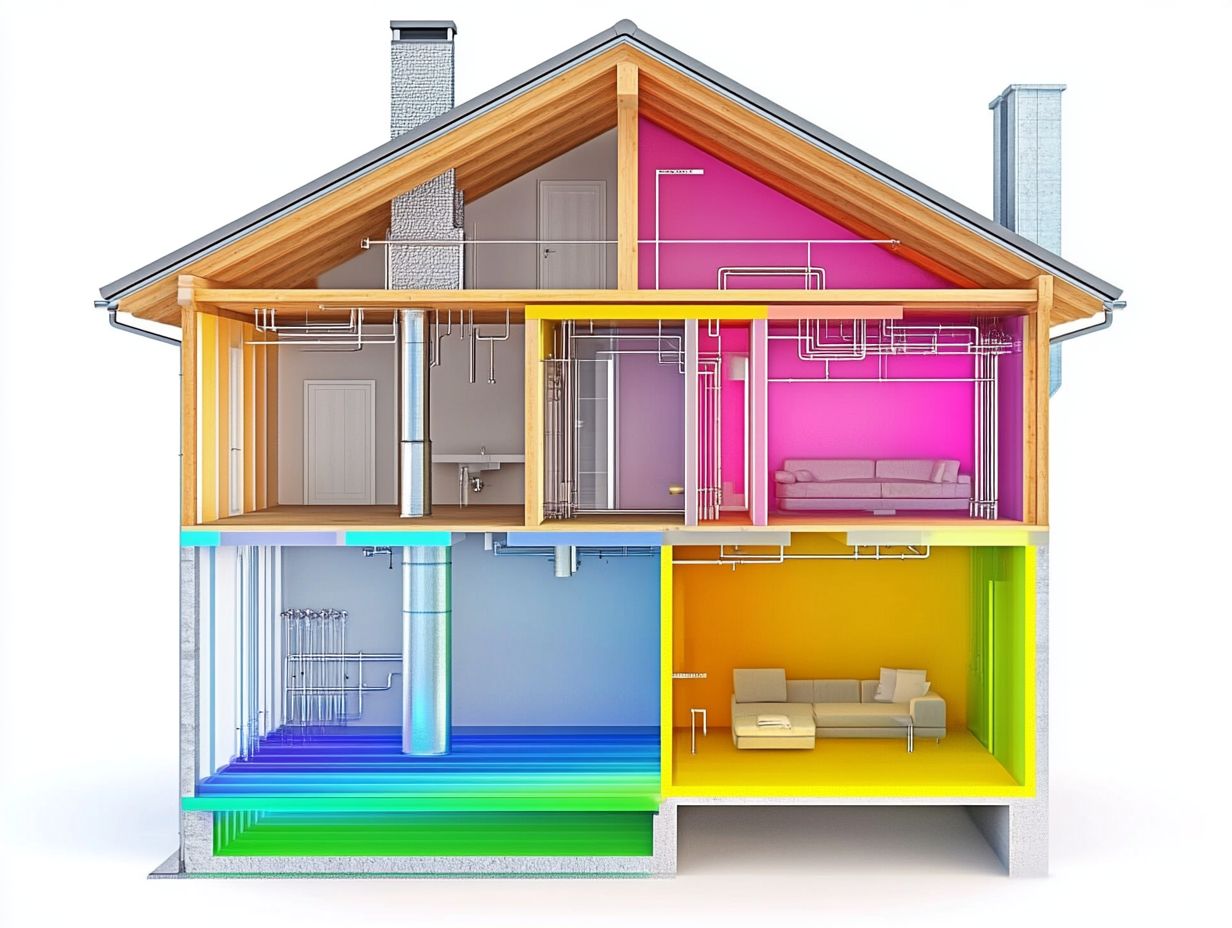
National and regional averages for home inspection costs reveal intriguing disparities in pricing across different housing markets. Understanding these differences can be crucial, so it’s helpful to look into the process of home inspections, as these disparities are shaped by local demand and unique property characteristics.
For example, while the national average for a basic home inspection might float around $300, in bustling metropolitan areas like San Francisco or New York City, costs can soar to over $500 due to heightened demand and limited supply. To navigate these expenses effectively, it’s crucial to grasp understanding the home inspection process.
If you venture into rural regions, you might be pleasantly surprised to see prices dip significantly, often dropping below $200, as the market lacks that competitive edge.
The type of property matters too; older homes frequently demand more thorough evaluations, which can drive inspection fees even higher. Grasping these nuances in market conditions is essential for you as a buyer, enabling you to navigate property evaluations with confidence.
Additional Fees and Services
As a homebuyer, it’s essential to recognize that additional fees and services may come into play during the home inspection process.
These often hinge on the inspector’s recommendations and the unique requirements of the property. Being informed about this can help you navigate the process more smoothly.
Common Add-Ons and Their Costs
Home inspections often include additional services like radon, mold, or termite inspections. Their costs vary based on your property’s specific features.
A radon inspection typically costs between $150 and $300. A mold inspection can range from $300 to $500, depending on the home’s size and complexity.
These inspections are crucial for homebuyers. They can uncover safety hazards that a standard inspection might miss.
Termite inspections usually cost around $100 to $200. They can reveal infestations that, if ignored, could lead to significant structural damage.
Investing in these specialized services brings you peace of mind and ensures your new home is safe. This step can save you significant expenses down the road!
How to Save on Home Inspection Costs
If you want to save on inspection costs, use a range of strategies to negotiate with inspectors and discover favorable deals.
This proactive approach ensures you receive the utmost value for your investment.
Tips for Negotiating and Finding Deals
Effective negotiation with home inspectors can lead to reduced fees and enhanced service options. It’s crucial to understand the market landscape and the inspector’s qualifications.
Researching average inspection costs in your area gives you essential information for negotiation. Gathering multiple quotes creates a competitive atmosphere and can help you secure better pricing.
Seek referrals from friends or family who had positive experiences. This can be incredibly beneficial.
Inquire about any available discounts or bundled services to uncover hidden savings.
By combining these strategies, you empower yourself to secure a more favorable deal while ensuring you receive the high-quality service you deserve.
Preguntas Frecuentes
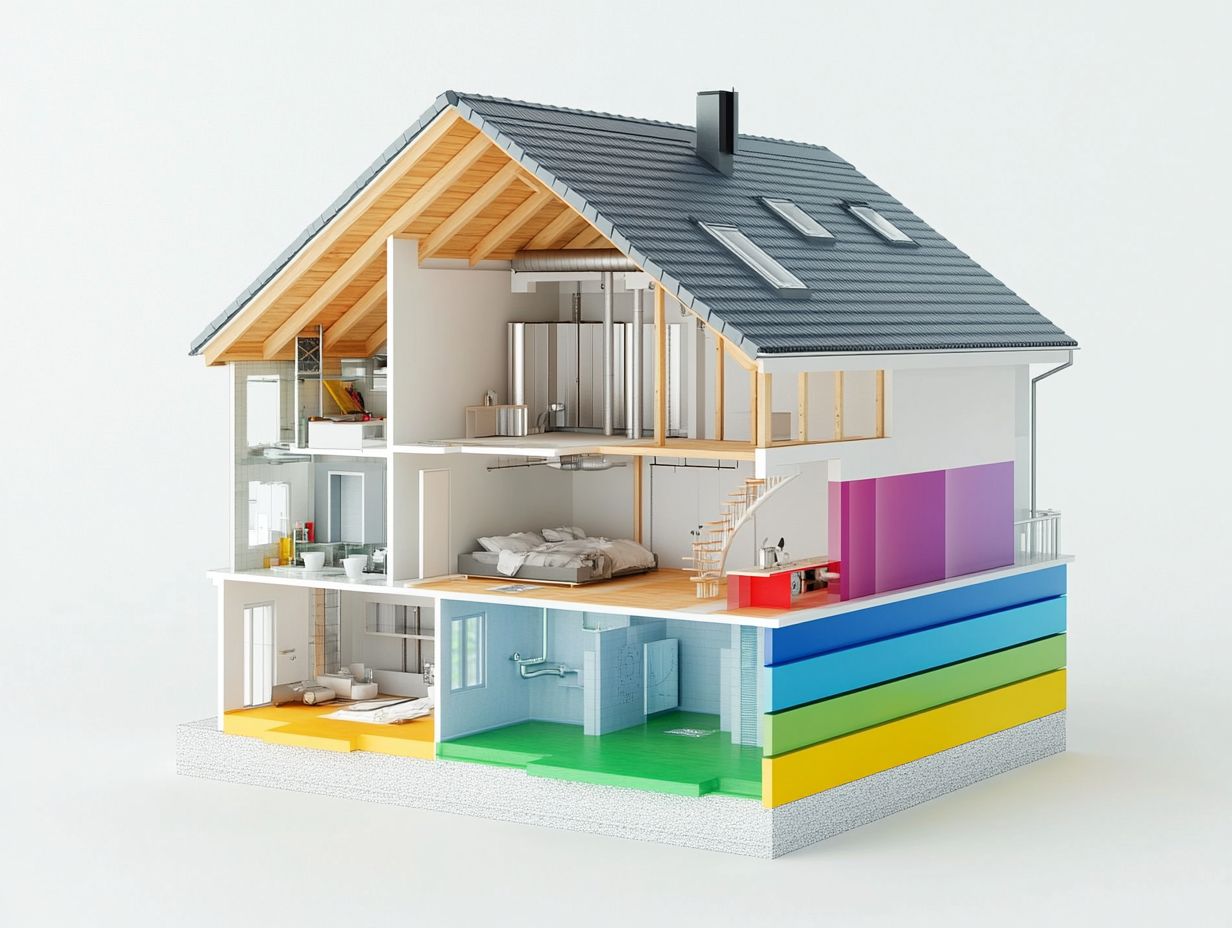
Cu l es el desglose de costos de una inspecci n de vivienda?
El desglose de costos de una inspecci n de vivienda t picamente incluye el costo base, servicios adicionales y cualquier tarifa extra potencial. El costo base generalmente se determina por el tama o y la edad de la vivienda. Servicios adicionales como pruebas de rad n o inspecciones de termitas pueden incurrir en tarifas adicionales. Pueden ocurrir tarifas extra para viviendas con caracter sticas nicas o acceso dif cil.
Cu nto cuesta normalmente una inspecci n de vivienda?
El costo de una inspecci n de vivienda puede variar dependiendo de factores como la ubicaci n, el tama o y la edad de la vivienda. Sin embargo, en promedio, una inspecci n de vivienda puede costar entre $300 y $500.
Qu servicios se incluyen t picamente en una inspecci n de vivienda?
Una inspecci n de vivienda t pica incluye una evaluaci n exhaustiva del exterior e interior de la vivienda. Esto incluye los cimientos, el techo, la fontaner a, el sistema el ctrico y los sistemas de calefacci n, ventilaci n y aire acondicionado (HVAC). El inspector tambi n comprobar cualquier posible peligro para la seguridad y dar recomendaciones sobre reparaciones o mantenimiento necesario.
Existen servicios adicionales que puedan ser recomendados?
Dependiendo de las necesidades espec ficas de la vivienda, el inspector puede recomendar servicios adicionales como pruebas de rad n, inspecciones de termitas o pruebas de moho. Estos servicios pueden tener un costo adicional, pero proporcionan informaci n valiosa sobre la seguridad y el estado general de la vivienda.
Se puede negociar el costo de una inspecci n de vivienda?
En algunos casos, el costo de una inspecci n de vivienda puede ser negociable. Sin embargo, es importante recordar que una inspecci n exhaustiva y completa es crucial para identificar cualquier problema potencial. No se recomienda comprometer la calidad de la inspecci n por un costo m s bajo.
Vale la pena el costo de una inspecci n de vivienda?
El costo de una inspecci n de vivienda puede parecer un gasto extra. Sin embargo, es un paso crucial al comprar una casa.
Una inspecci n completa puede revelar problemas ocultos. Esto te ayuda a decidir si seguir adelante con la compra o negociar reparaciones con el vendedor.
No dejes que sorpresas desagradables arruinen tu compra. Considera una inspecci n hoy mismo!

